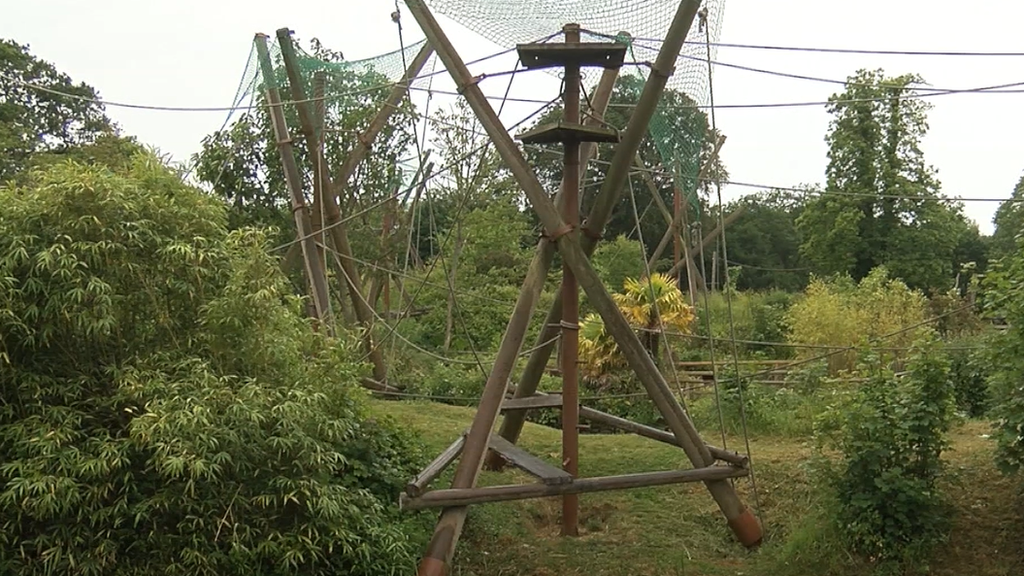Concerns raised about the future of Jersey Zoo
- Published
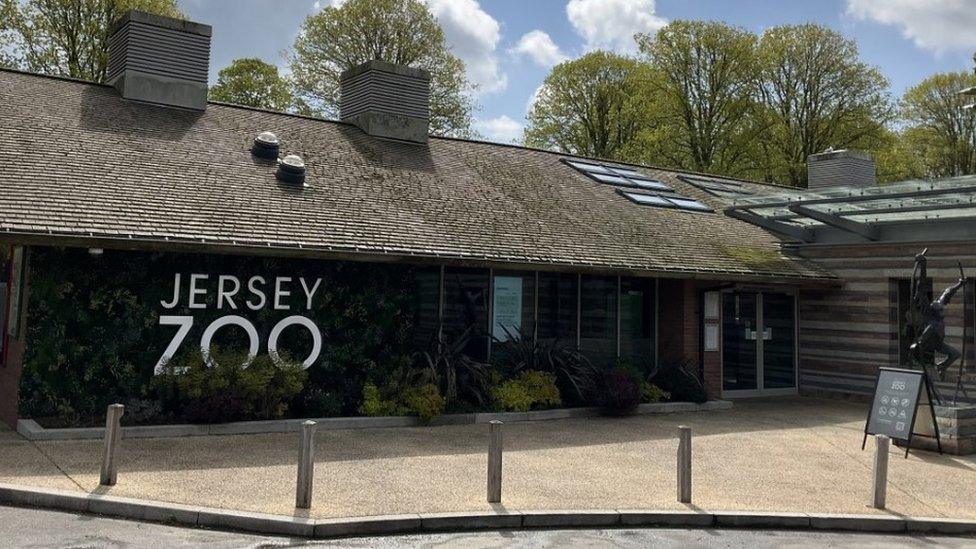
The trustees are responsible for how the zoo and global trust are governed
Jersey Zoo has denied replacing endangered species with less at-risk, more crowd-pleasing animals.
Former staff are among those criticising the running of the zoo with accusations of bullying and a lack of engagement from management.
Some believe the vision of founder Gerald Durrell to save endangered species from extinction has been lost.
The zoo's management has disputed the allegations and said they took all concerns seriously.
A vote of no-confidence in the current Board of Trustees of the Durrell Wildlife Conservation Trust is due to be heard at an extraordinary general meeting on Thursday.
The trustees are responsible for how the zoo and global trust are governed.
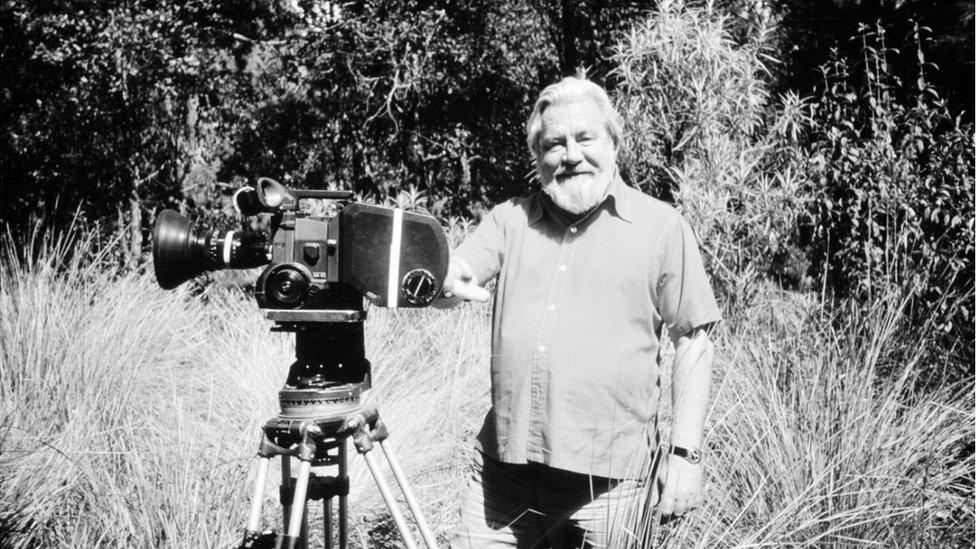
Some believe the vision of founder Gerald Durrell to save endangered species from extinction has been lost
Jersey Zoo has been welcoming visitors since 1959 when the world famous conservationist and author opened its doors.
Quentin Bloxham, former conservation director, started in 1963 and worked there for 45 years as a keeper, head of departments and a director.
He said he had concerns about animal welfare, including the sloth enclosure.
"If you see them when there's nobody there, they're quite relaxed, but put 30 excited schoolchildren in there on a busy day of tourists visiting - they would find that quite stressful," he said.
"They exported the bears and replaced them with a giant anteaters, which are renowned to be fairly secretive if there are lots of people around and they tend to be semi - if not totally - nocturnal.
"The macaques that they also got rid of - critically endangered - fantastic exhibit. It absolutely needs some sort of review."
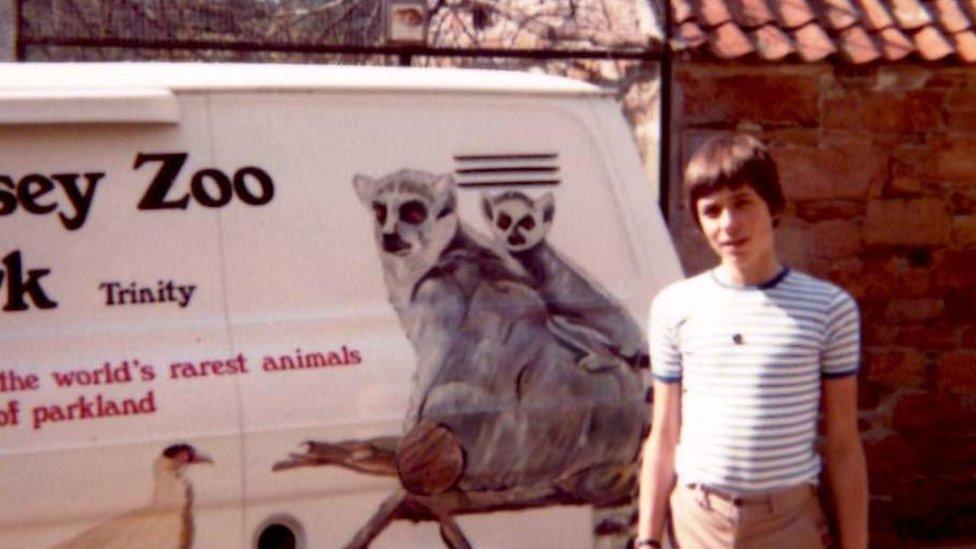
Russell Tofts cancelled his membership after 46 years due to his lack of faith in the trust's direction
Former zookeeper and zoologist, Russell Tofts, became a fan and member when he was 12, but he cancelled his membership in 2023.
He said this was because he could no longer support the direction the trust was going in.
Mr Tofts said: "Unless the powers that be at Jersey Zoo acknowledge that there are serious issues, that many formerly loyal supporters and benefactors have genuine grievances... there will, quite frankly, be no Jersey Zoo... as things stand, I am afraid to say it's drowning and it needs a life raft."
He said: "Gerald Durrell, in his books always made a point the enclosures should be designed from the animals' own point of view. The second in importance was the person who was looking after the animal and third in importance was the public who wished to see the animal. But now that has been reversed.
"The animal enclosures for the latest arrivals in particular are designed more to show them off to the public than for the animals welfare. The zoo has moved away from the remit Gerald Durrell carved out".
He added he thought "the trustees should step down and new trustees should be appointed and they should allow an external independent investigation to go ahead".
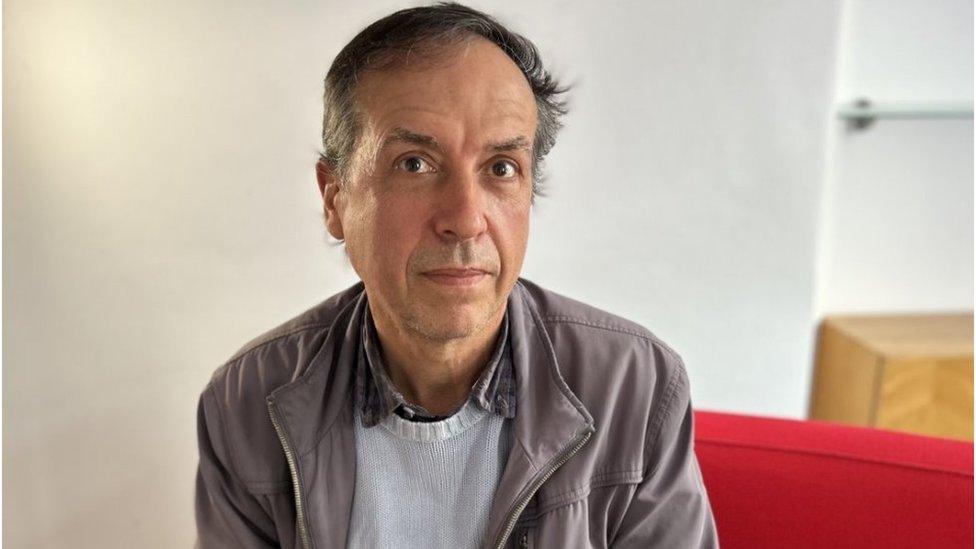
Dominic Wormell emphasised this world needed Jersey Zoo
The former head of mammals - Dominic Wormell - who resigned in August after 34 years, said "as a general principle I will always work in organisations that hold up using ideas as evolution, where criticism is thrived on and you move on together".
"In my heart I like to have my views heard and work in a place where everyone's encouraged to be a champion."
Whilst at the zoo, Mr Wormell bred the first black lion tamarins outside of Brazil and did the first ever reintroduction of the animals into the wild.
Mr Wormell emphasised this world needed Jersey Zoo and he wished it the "very, very, very best" as well as the Durrell Wildlife Conservation Trust.
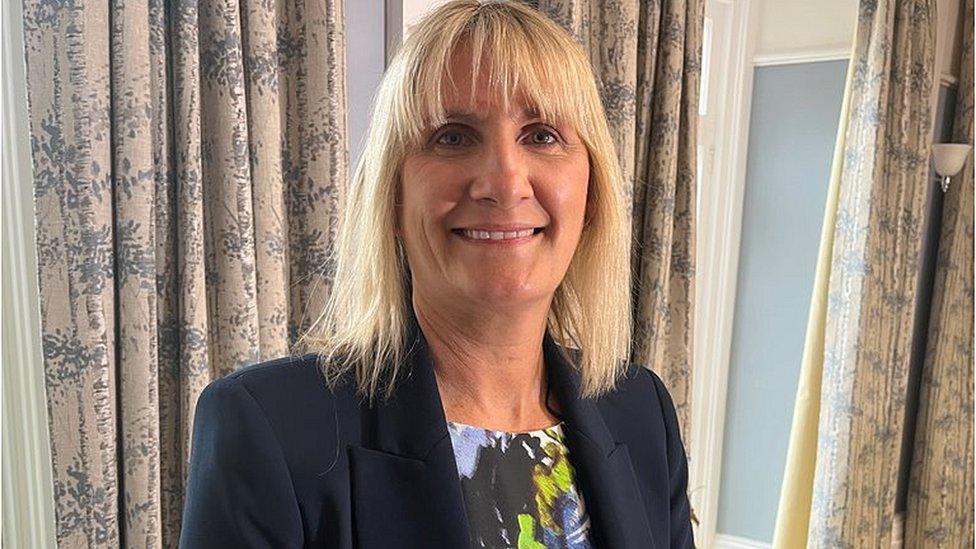
Rebecca Brewer said there was a zero tolerance to bullying
The Interim CEO of Durrell - Rebecca Brewer - said: "Animal welfare is a top priority here at Durrell.
"We have a team of really passionate and dedicated and experienced keepers and vets here on site who care for the animals, day in, day out.
"We will always evolve and adapt our welfare standards, our care with the enclosures based on daily observations and, with the animals, based on best practice and latest husbandry guidelines."
She said: "Durrell has a zero tolerance to bullying and we have robust policies and procedures in place to deal with complaints that are raised to us and they will always be dealt with respectfully and confidentially with the individuals involved.
"Staff welfare is such an important priority for us - especially now."
She added they "are listening to our staff, to our volunteers, to our members... we're understanding the feedback and we're not afraid to change if we think change is necessary".
"But what's so important now is Durrell has stability - that we really can bring everyone together and that we can move forward positively."
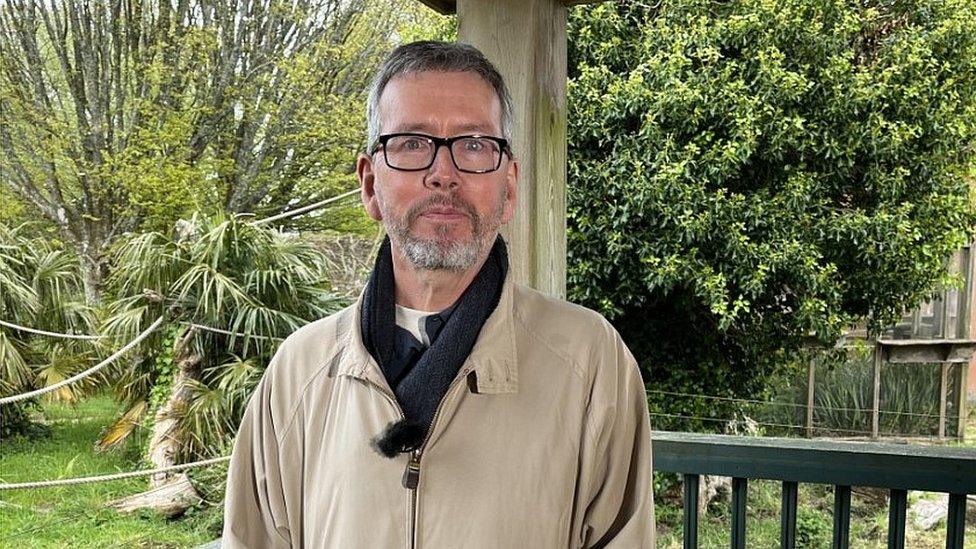
Matthew Hatchwell said as a board they needed to base their decisions on facts
The chairman of Durrell's Board of Trustees, Matthew Hatchwell, who has a background in conservation, said in any zoo there was always a balance between animals that were the focus of conservation efforts and the ones that were there to some extent to attract the public into the zoo.
He believed in 2014, 45% of the species in Jersey Zoo were threatened to one degree or another and in 2024 that figure had increased to 50%.
Mr Hatchwell said in similar zoo-based conversation organisations in the UK there was between 20% and 30%.
He said as a board they needed to base their decisions on facts, not on allegations and rumours. He said of course they took any complaints seriously, investigated them and took action when required.
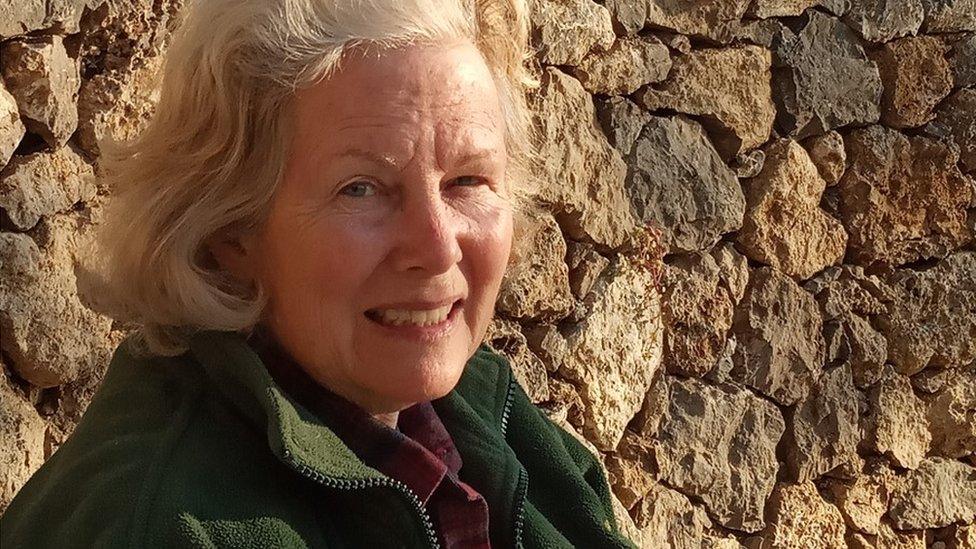
Lee Durrell said she was "very distressed by the morale"
Lee Durrell - Gerald Durrell's widow, honorary director of the trust and a permanent member of the board of trustees - said: "It's been a very, very emotional time for me.
"I'm very distressed by the morale that the way our staff are feeling about it.
"But you know Durrell's resilient. We've been going for 60 years and we've got ourselves through some pretty good scrapes and come through the stronger for it. And I think the same will happen now.
"We will be united in Gerry's mission to save species from extinction."

Follow BBC Jersey on X (formerly Twitter), external and Facebook, external. Send your story ideas to channel.islands@bbc.co.uk, external.
Related topics
- Published21 March 2024
